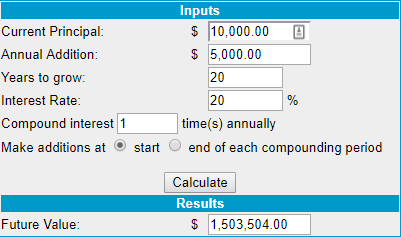
This article will help you understand the basics of fundrise investing before you invest. This article will provide information about some of the options, including portfolios, eREITs and funds. This article will also explain the fees and what you can expect regarding the management fee. You'll also discover how to earn the maximum return on your investment with Fundrise. This article will address all your questions regarding Fundrise.
eREITs
eREITs can be described as mutual funds that invest into commercial real estate. The eREIT portfolio usually includes properties like hotels, apartment buildings, or office buildings. The costs of eREITs, which are not publicly traded are much lower. They are also structured like partnerships, rather than corporations, to avoid double taxes. There are also many eREITs focusing on residential realty, including single-family residences.
One downside of eREITs is that they are not very liquid. Fundrise investments can only be redeemed once per quarter. Young investors may find this problematic as capital gains can usually be tax-efficient. Fundrise, a relatively new REIT company, may be a riskier investment than other REITs.

eFunds
Fundrise eFund will be a good choice for investors interested in real property. The site has a variety of investment options, including REITs, which are investments in commercial real estate. Fundrise does not offer as many investment options as REITs. These investment options allow for both capital appreciation and ongoing income after the sale of individual property.
Fundrise offers three investment plans. Investors have the option to choose from the Core account, which provides greater diversification among eREITs. The Core Plan is available to investors who have a principal of $1,000 or greater. The Core Plan is available to investors with a principal of $1,000 or greater. Investors can then upgrade their account to the advanced account. This account offers a wider variety of investment options, including DC eFunds. If they so desire, investors can choose to invest in both.
Portfolio options
There are many ways you can invest your money. But, the best way is to examine each portfolio's options. Fundrise offers both income and growth options. Income investments have lower taxes and yield higher returns in the short-term, while growth investments are more lucrative. The risks involved in investing in these plans are varied, so it is important to make a decision based on your financial goals and personal situation. It is important to evaluate the Fundrise portfolio's risk profile to find which one would best suit your lifestyle and requirements.
Fundrise's investment platform is simple to understand. The company offers a free 90-day trial period during which withdrawals are possible. However, the company may freeze redemptions for an extended period of time, such as during a financial crisis, such as the one likely to occur in 2020. In terms of the fund, investors can choose to withdraw their funds at any point during the first 90-days. Although they have the option to leave Fundrise for longer periods of time, investors can still withdraw their money within five years. There is however a small risk.

Management fee
Fundrise charges a flat fee of 1% per annum for management services. This breaks down to 0.15 percent for investment portfolio management and 0.85 for asset manager. Fundrise charges a flat 1% per year for the management of Fundrise's teams, which negotiate underlying assets or set up real estate partnership agreements. These services are charged at a rate of 0% to 2% depending upon the amount you invest. Fundrise is favored by many investors for its low fees as well as decent returns.
Fundrise cannot pay its own managers so the maintenance fee is necessary. Fundrise is required to be able to continue processing payments through Fundrise if your organisation chooses to employ Fundrise as its manager. Fundrise is able to waive the fees and find a new processor in the event of your company's processor going out of business. This can be a major downside but it is worth the risk.
FAQ
What is the difference in the stock and securities markets?
The securities market is the whole group of companies that are listed on any exchange for trading shares. This includes options, stocks, futures contracts and other financial instruments. Stock markets are typically divided into primary and secondary categories. Stock markets are divided into two categories: primary and secondary. Secondary stock market are smaller exchanges that allow private investors to trade. These include OTC Bulletin Board Over-the-Counter (Pink Sheets) and Nasdaq ShortCap Market.
Stock markets are important because they provide a place where people can buy and sell shares of businesses. Their value is determined by the price at which shares can be traded. Public companies issue new shares. These newly issued shares give investors dividends. Dividends are payments that a corporation makes to shareholders.
In addition to providing a place for buyers and sellers, stock markets also serve as a tool for corporate governance. Shareholders elect boards of directors that oversee management. Boards ensure that managers use ethical business practices. If the board is unable to fulfill its duties, the government could replace it.
How do I invest on the stock market
Brokers can help you sell or buy securities. Brokers buy and sell securities for you. Trades of securities are subject to brokerage commissions.
Banks typically charge higher fees for brokers. Banks offer better rates than brokers because they don’t make any money from selling securities.
To invest in stocks, an account must be opened at a bank/broker.
A broker will inform you of the cost to purchase or sell securities. Based on the amount of each transaction, he will calculate this fee.
Ask your broker about:
-
Minimum amount required to open a trading account
-
Are there any additional charges for closing your position before expiration?
-
What happens if your loss exceeds $5,000 in one day?
-
How many days can you maintain positions without paying taxes
-
whether you can borrow against your portfolio
-
How you can transfer funds from one account to another
-
How long it takes transactions to settle
-
The best way buy or sell securities
-
How to Avoid fraud
-
how to get help if you need it
-
whether you can stop trading at any time
-
If you must report trades directly to the government
-
Reports that you must file with the SEC
-
Whether you need to keep records of transactions
-
If you need to register with SEC
-
What is registration?
-
How does it affect you?
-
Who needs to be registered?
-
When do I need registration?
What is a bond?
A bond agreement is an agreement between two or more parties in which money is exchanged for goods and/or services. It is also known simply as a contract.
A bond is usually written on a piece of paper and signed by both sides. This document includes details like the date, amount due, interest rate, and so on.
The bond is used for risks such as the possibility of a business failing or someone breaking a promise.
Bonds are often used together with other types of loans, such as mortgages. This means the borrower must repay the loan as well as any interest.
Bonds can also be used to raise funds for large projects such as building roads, bridges and hospitals.
The bond matures and becomes due. This means that the bond owner gets the principal amount plus any interest.
Lenders can lose their money if they fail to pay back a bond.
Why are marketable Securities Important?
The main purpose of an investment company is to provide investors with income from investments. It does this by investing its assets in various types of financial instruments such as stocks, bonds, and other securities. These securities have certain characteristics which make them attractive to investors. They may be considered to be safe because they are backed by the full faith and credit of the issuer, they pay dividends, interest, or both, they offer growth potential, and/or they carry tax advantages.
A security's "marketability" is its most important attribute. This refers to the ease with which the security is traded on the stock market. If securities are not marketable, they cannot be purchased or sold without a broker.
Marketable securities include government and corporate bonds, preferred stocks, common stocks, convertible debentures, unit trusts, real estate investment trusts, money market funds, and exchange-traded funds.
These securities are often invested by investment companies because they have higher profits than investing in more risky securities, such as shares (equities).
Statistics
- Our focus on Main Street investors reflects the fact that American households own $38 trillion worth of equities, more than 59 percent of the U.S. equity market either directly or indirectly through mutual funds, retirement accounts, and other investments. (sec.gov)
- Individuals with very limited financial experience are either terrified by horror stories of average investors losing 50% of their portfolio value or are beguiled by "hot tips" that bear the promise of huge rewards but seldom pay off. (investopedia.com)
- Even if you find talent for trading stocks, allocating more than 10% of your portfolio to an individual stock can expose your savings to too much volatility. (nerdwallet.com)
- US resident who opens a new IBKR Pro individual or joint account receives a 0.25% rate reduction on margin loans. (nerdwallet.com)
External Links
How To
How to Invest in Stock Market Online
Stock investing is one way to make money on the stock market. There are many ways you can invest in stock markets, including mutual funds and exchange-traded fonds (ETFs), as well as hedge funds. The best investment strategy depends on your investment goals, risk tolerance, personal investment style, overall market knowledge, and financial goals.
To be successful in the stock markets, you have to first understand how it works. Understanding the market and its potential rewards is essential. Once you've decided what you want out your investment portfolio, you can begin looking at which type would be most effective for you.
There are three main types: fixed income, equity, or alternatives. Equity is ownership shares in companies. Fixed income refers debt instruments like bonds, treasury bill and other securities. Alternatives include commodities, currencies and real estate. Venture capital is also available. Each category has its own pros and cons, so it's up to you to decide which one is right for you.
Once you have determined the type and amount of investment you are looking for, there are two basic strategies you can choose from. One is called "buy and hold." You buy some amount of the security, and you don't sell any of it until you retire or die. Diversification is the second strategy. It involves purchasing securities from multiple classes. If you purchased 10% of Apple or Microsoft, and General Motors respectively, you could diversify your portfolio into three different industries. Multiple investments give you more exposure in different areas of the economy. It helps protect against losses in one sector because you still own something else in another sector.
Risk management is another important factor in choosing an investment. Risk management will allow you to manage volatility in the portfolio. A low-risk fund could be a good option if you are willing to accept a 1% chance. You could, however, choose a higher risk fund if you are willing to take on a 5% chance.
Learning how to manage your money is the final step towards becoming a successful investor. A plan is essential to managing your money. A good plan should cover your short-term goals, medium-term goals, long-term goals, and retirement planning. You must stick to your plan. Keep your eyes on the big picture and don't let the market fluctuations keep you from sticking to it. Keep to your plan and you will see your wealth grow.